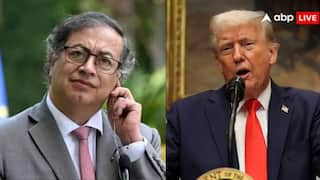Explorer
After demonetisation, these evasion attempts people tried to 'fix' their black money

New Delhi: Since the Prime Minister Narendra Modi-led Bharatiya Janata Party (BJP) announced demonetisation on November 8, those having black money tried many evasive attempts. They tried to take benefits from some loopholes which the government quickly rectified. Here we are telling you in how many different ways people tried to convert their black money into white. Gold purchases: From 9th November onwards, in Gujarat, Delhi and many other major cities, sale of gold increased with a hiked, reportedly, 20 to 30% premium, surging the price as much as Rs 45,000 from the ruling price of Rs 31,900 per 10 grams. Multiple bank transactions: As per some reports, people circumvented the restrictions imposed on exchange transactions, they attempted to convert black money into white by making multiple transactions at different bank branches. Reportedly, people were also getting rid of large amounts of banned currency by sending people in groups to exchange their money at different banks. The government, in response, announced that it would start marking customers with indelible ink. On 17 November, the Government of India reduced the exchange amount to Rs 2,000 to discourage attempts to convert black money into white. Donations: At Vellore, authorities of Sri Jalakanteswarar temple discovered cash worth Rs 4.4 million from the temple Hundi. Railway bookings: As soon as the notes ban was announced on 8th November, it was noticed by the Indian Railways that a large number of people started booking tickets particularly in classes 1A and 2A for the longest possible distance, to get rid of unaccounted cash. Reportedly, on November 9, 27,237 passengers had booked tickets in 1A and 69,950 in 2A. On November 13, in a sharp dip, their number were only 1,209 in 1A and 16,999 for 2A. Responding swiftly, the Railways Ministry and the Railway Board decided that cancellation and refund of tickets of value ₹10,000 and above will not be allowed by any means involving cash. Municipal and local tax payments: As the use of the demonetised notes had been allowed by the central government for the payment of municipal and local body taxes, it led to people using the demonetised Rs 500 and Rs 1,000 notes to pay large amounts of outstanding and advance taxes. Revenue collections, as a result, of the local civic bodies jumped. Within 4 days, the Greater Hyderabad Municipal Corporation reported collecting about Rs 1.6 billion in cash payments of outstanding and advance taxes. Backdated accounting: The Enforcement Directorate (ED) raided several forex establishments making backdated entries. Money laundering using backdated accounting was carried out by not only co-operative banks, but jewellers, sellers of iPhones, and several other businesses.
Related Video
Uttarakhand News: Winter Chill Grips North India; Kedarnath Dham Covered in Snow
Follow Breaking News on ABP Live for more latest stories and trending topics. Watch breaking news and top headlines online on ABP News LIVE TV

Justin M Bharucha
Opinion




































